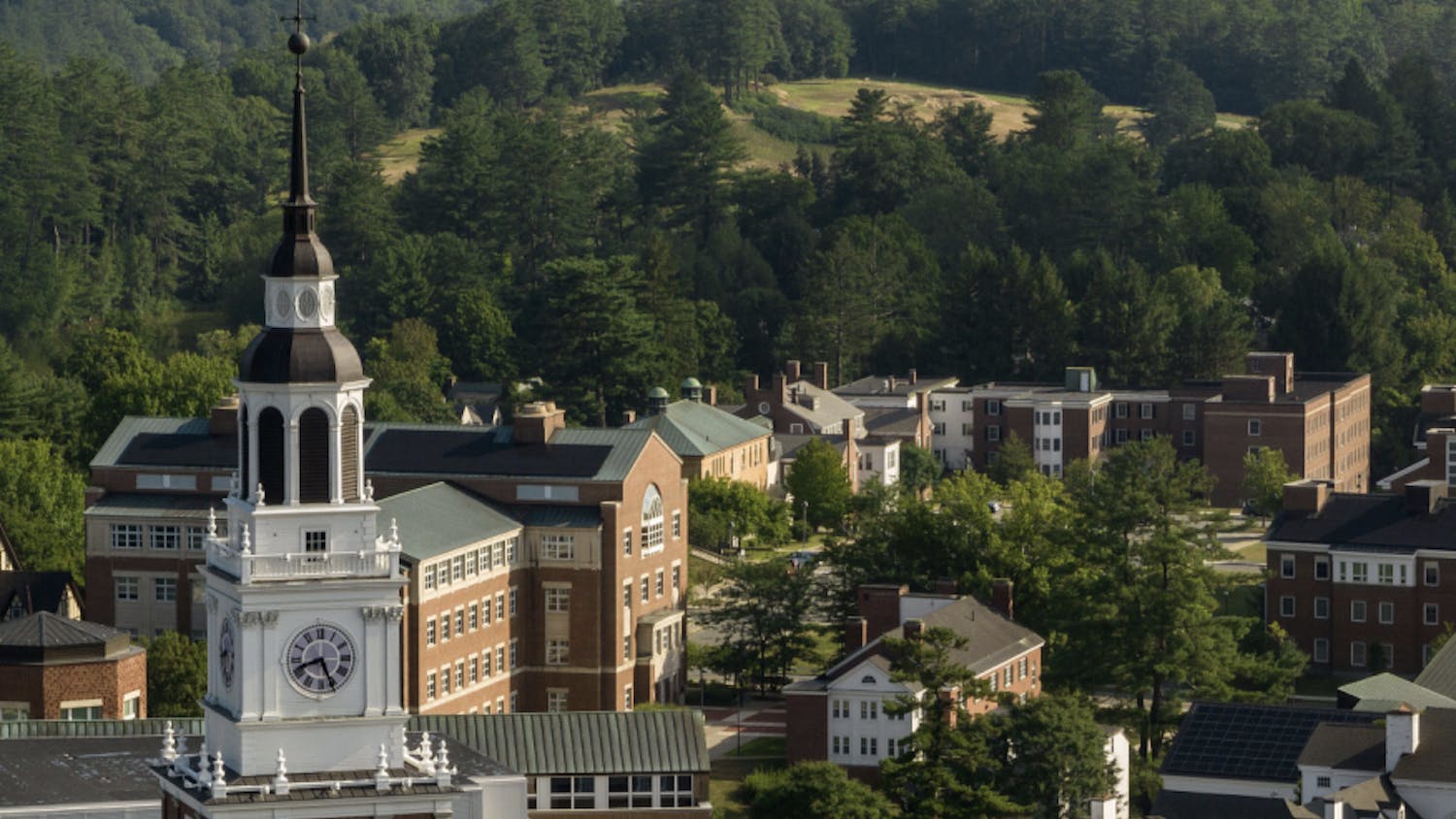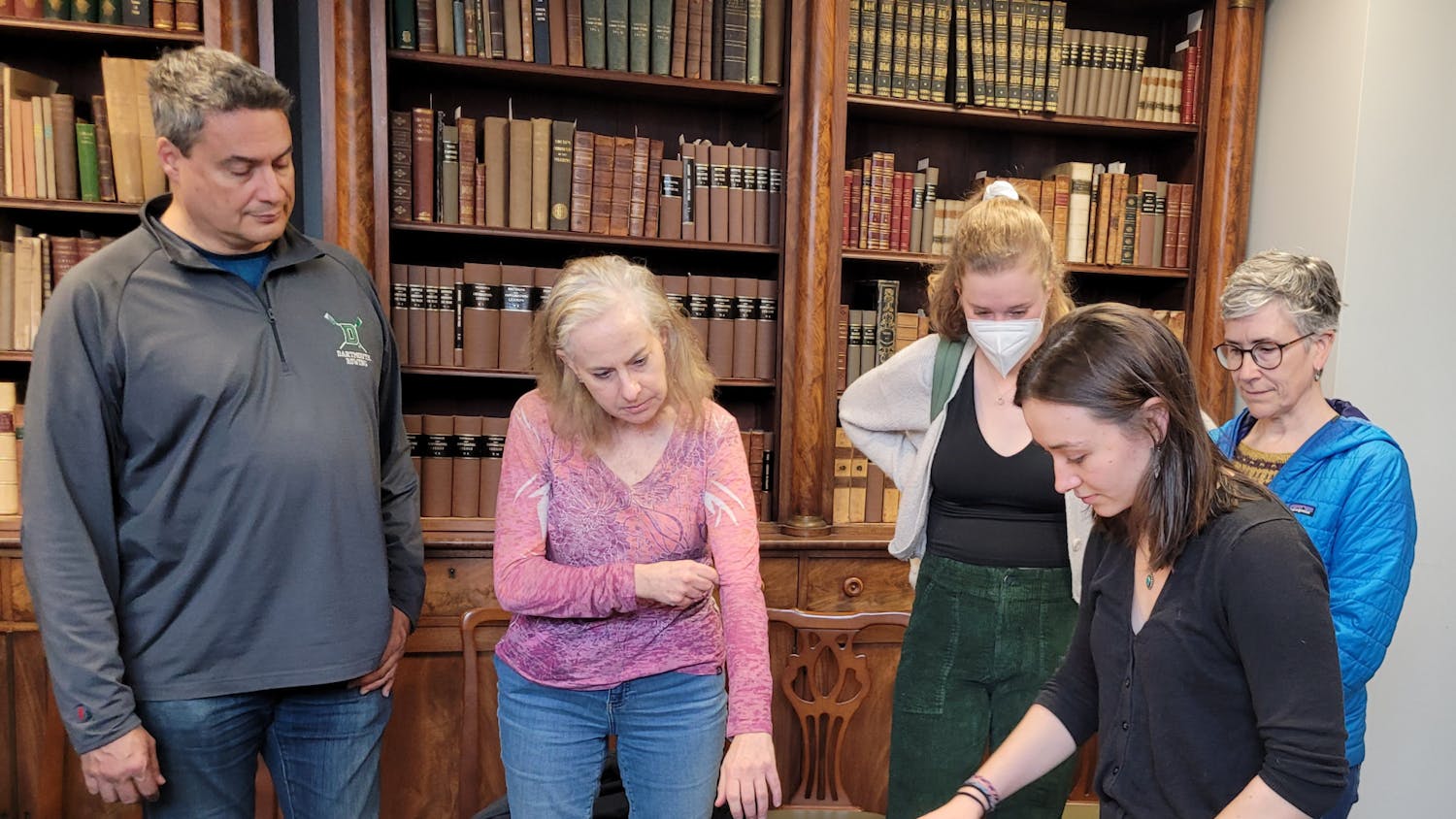The appointment and removal of Susan Taffe Reed from her position as director of the Native American Program has caused discussion among some Native American students and alumni at Dartmouth.
Reed was named director of Dartmouth’s Native American Program in September, and shortly afterwards, tribal officials and Native American alumni began to voice concerns over the perceived dishonesty of her ethnic background and her qualifications for the job.
College spokesperson Diana Lawrence wrote in an email last week that the “distraction around Reed’s appointment hindered her ability to effectively do her job, but that she will remain an employee at the College.”
Lawrence did not provide a timeline for the search for a new director. Jeremy Guardiola ’12 will serve as interim advisor for the Native American Program.
“It definitely isn’t an issue of whether [Reed] is Native or not Native,” Native Americans at Dartmouth treasurer Andrew Shipman ’18 said. “It’s an issue of her lying about being Native.”
In particular, Reed’s position as president of Eastern Delaware Nations, a 501(c)(3) non-profit that is not a federally recognized tribe, brought about some of the strongest criticism. The organization was perceived by some as culturally appropriating the heritage of several legitimate Native American tribes, and Reed herself was accused of having solely Irish ancestry by the blog FakeIndians.
“Her organization [the Eastern Delaware Nations] is extremely problematic,” Jacqueline Keeler ’91, a Native American activist and journalist, said. “The Taffes have a terrible relationship with the Native community at large. The [federally-recognized] Delaware tribe is doing investigations into alleged violations of the Native Graves Protection and Repatriation Act — under which only federally-recognized tribes can receive Native remains — by the Taffe family,” Keeler said.
Shipman said he questioned the degree to which Reed can be blamed for her familial background, however, noting that Reed was raised in a family that was deeply involved, even before she was born, with the Eastern Delaware Nations.
Aside from perceived dishonesty, some of those interviewed by The Dartmouth thought Reed was generally ill-suited for the role of program director.
“She did not have the skills and background to relate to American Indian students who come from traditional communities, reservations and tribal areas,” André Cramblit ’86, a Native American alumnus who also applied for the position of director, said.
Shipman said Reed did not have the right personality for the job.
“She didn’t spend a lot of time around the community and spent most of the time in her office. She didn’t do a great job of communicating throughout the whole ordeal,” he said.
Both Shipman and Cramblit said they were not speaking for other members of Dartmouth’s Native American community and spoke only for themselves.
Cramblit criticized the College’s hiring process.
“The hiring firm that they retained should have ferreted out that she was president of a 501(c)(3) non-profit, which does not equate to being the chief of a tribe, and that was Dartmouth’s mistake,” Cramblit said. “I also fault the planning committee for not pursuing her further and having her document her connection more stringently.”
Shipman said that the College’s selection committee did the best they could.
“They had a few students, some of the [Native American studies] staff, and they also used an outside search agency,” Shipman said.
The decision to remove Reed from her position was welcomed as the “best move for the community,” Shipman said. The College has “restored a lot of credibility” by removing her, Keeler said.
In his only public statement so far, Native American studies professor Bruce Duthu — who headed the search committee and previously served as the NAP director — defended the committee’s choice and Reed’s honesty about her ethnic background by saying that birth and death certificates for Native Americans are highly unreliable, and a reliance of federal recognition as a sign of legitimacy was frequently criticized. Duthu did not respond to requests for comment about Reed.
The College has not done a good job of keeping up with what is going on in Indian Country, Cramblit said, and he said the College does not have a good communication system with alumni and the broader Native American Community.
“Dartmouth has not kept up their responsibility for being knowledgeable about what is important in Indian Country for education issues, and they’re not in touch with tribes about what their needs are back home and in the community and how Dartmouth can meet those needs,” he said.
Some think that the College’s reputation has been damaged by the controversy in the eyes of Native Americans nationally.
“Native parents say they don’t want their children to go [to Dartmouth],” Keeler said.
Shipman echoed these concerns about Dartmouth’s reputation.
“[The controversy] could effect the number of Native students applying to Dartmouth, it could make parents think the Native community here is hokey, which is just not true,” Shipman said. “We have a really strong community here — to have people just hurl insults at our cultural identity is not cool.”
The emphasis should be finding a director whose primary role would be as a counselor to Native American students at Dartmouth and would be a good spokesperson for the community, several interviewed said.
“We’re hoping for someone who’s honest,” Keeler said. “We would prefer her to be Native and to have experience, as the most successful times the program has had were under Native alums when students felt completely supported. [The NAP] needs people who understand what students are going through.”
In an email statement to the Dartmouth, Guardiola said his primary commitment is looking after students in the NAP. Reed remains employed by the College, though it is unclear in what capacity.



